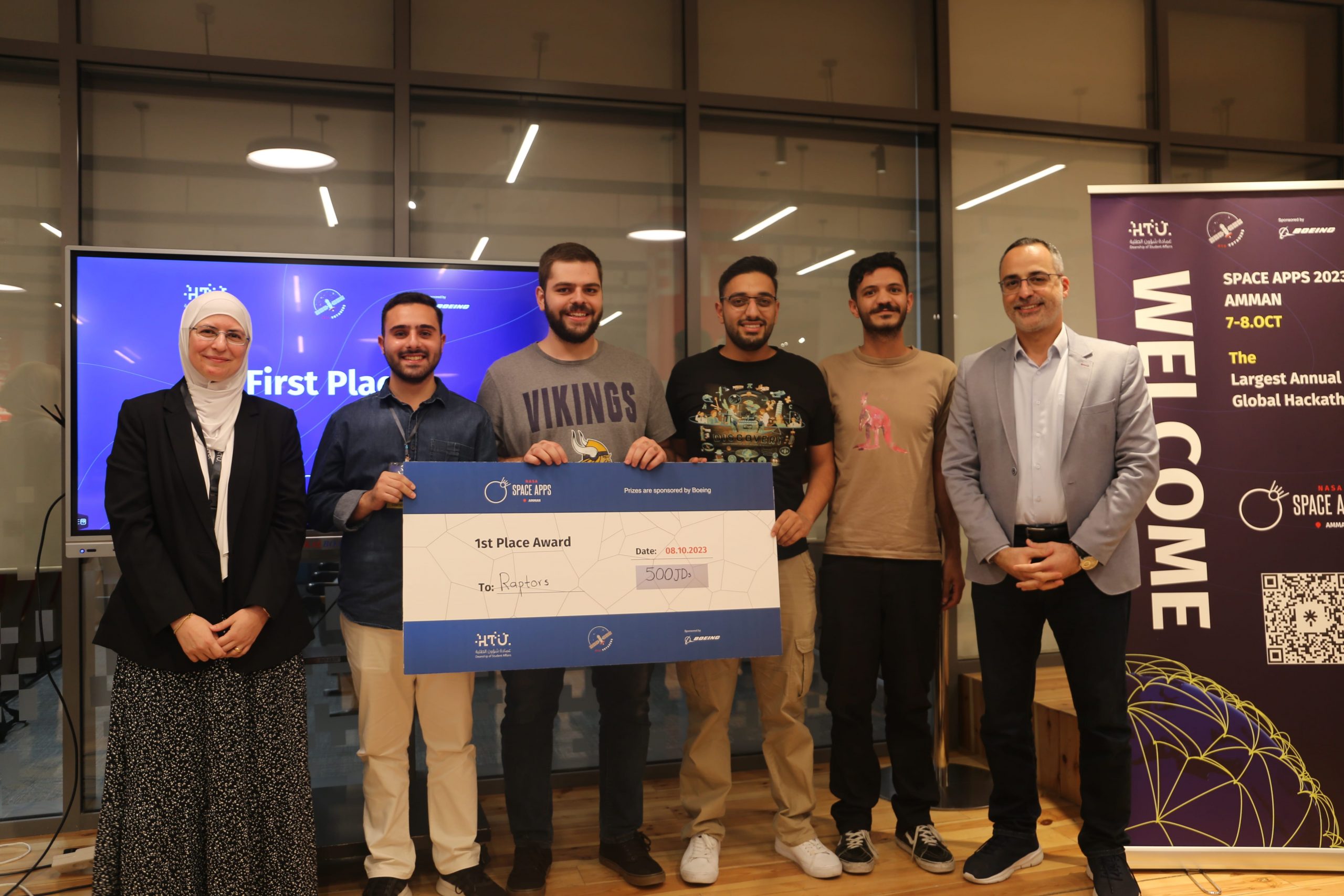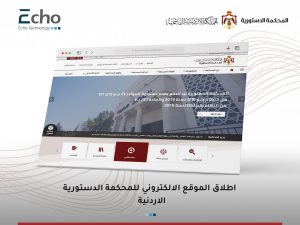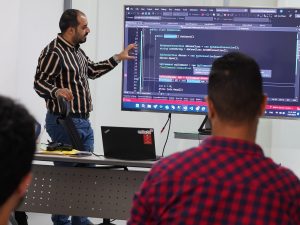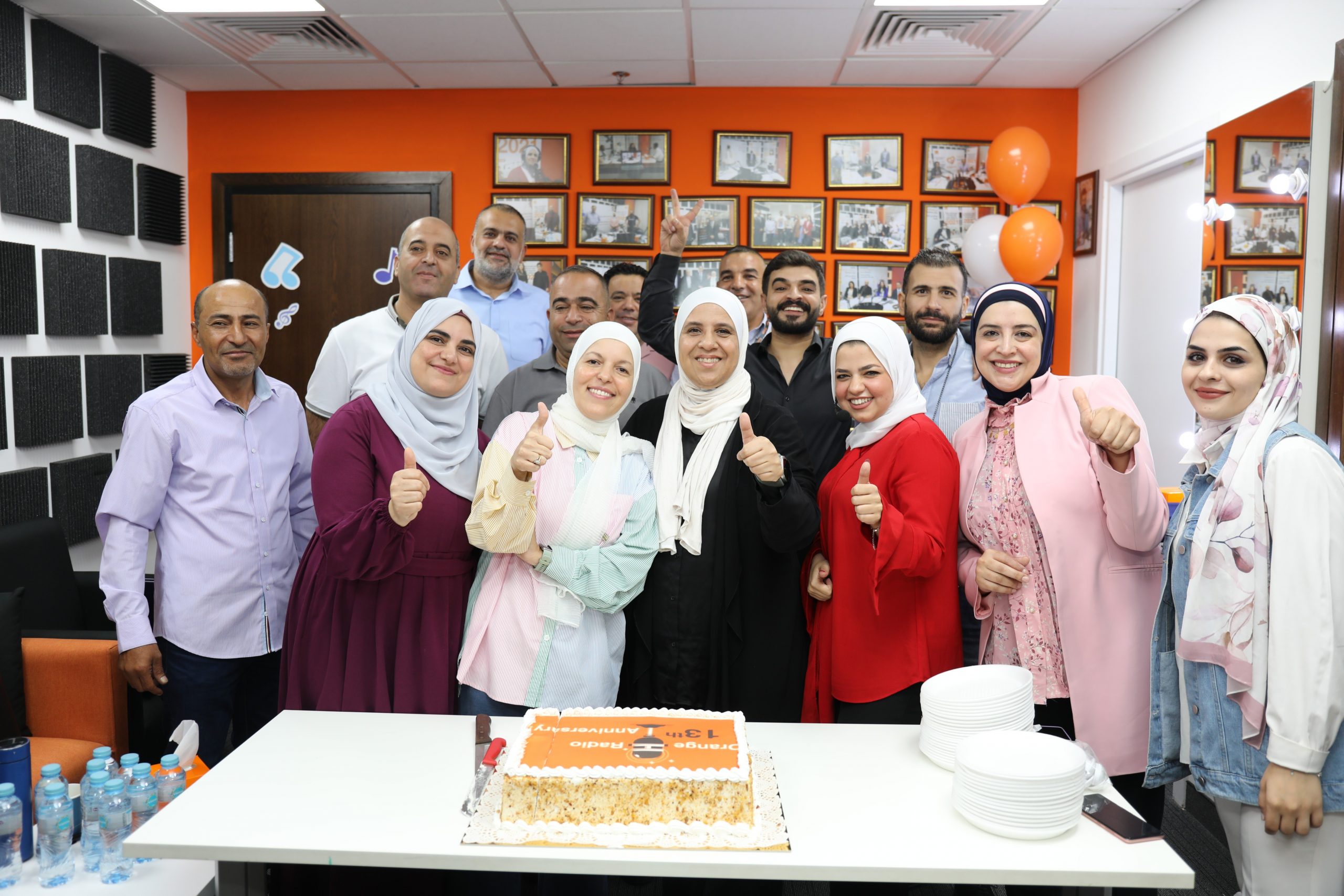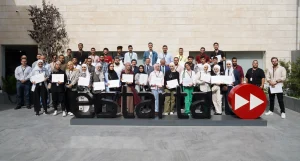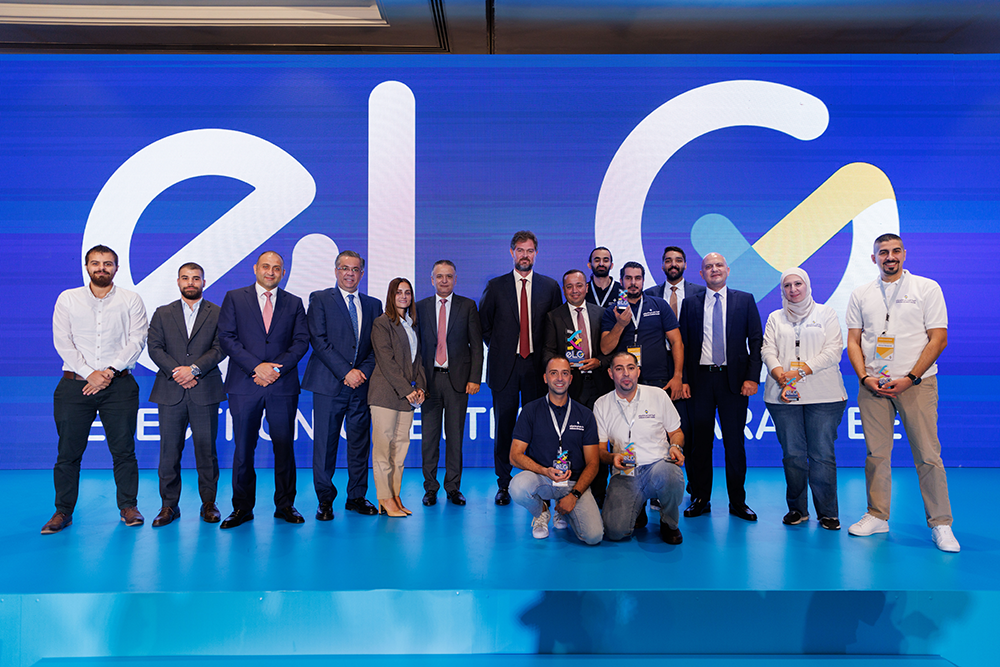
The Jordan Payments and Clearing Company (JoPACC) recently launched a “Corporate Challenge” for the three banks sponsoring its JOIN Fincubator; the Jordan Kuwait Bank, the Housing Bank for Trade and Finance, and the Jordan Islamic Bank. The corporate challenge which took place under the patronage of His Excellency Dr. Adel Al-Sharkas, Chairman of the Board of Directors and Governor of the Central Bank of Jordan, aims to design the best user interface and experience design (UI/UX Design) for the Electronic Letter of Guarantee (eLG), as part of the initiative to digitalize the service.
JoPACC has identified the digitalization of the Electronic Letter of Guarantee (eLG) as one of its important 2023 projects. This falls under its broader strategy for the years 2023-2026, in which one pillar is centered around delivering innovative financial and banking services to individual and corporate clients alike. As such, JoPACC, through the banks sponsoring JOIN Fincubator put forth an initiative to digitalize the eLG service, to reduce reliance on paper and manual processes, which can lead to inefficiency, wasted time and effort, and the potential for forgery and fraud. Digitalizing the eLG service can further help improve governance and add reliability to the process by adding the beneficiary’s bank as one of the parties in the workflow mechanism for the eLG, like other banking services such as documentary credits and others that include the customer, the beneficiary, and their respective banks.
By collaboratively engaging in the eLG initiative introduced via JOIN Fincubator, banks have the opportunity to strengthen their collaborative efforts and partnerships. This not only demonstrates their dedication to implementing the priorities outlined in the 2022 Economic Modernization Vision but also aligns with the directives of the Central Bank of Jordan’s Open Banking Instructions, a pivotal pillar in fostering financial technology advancement. Additionally, the eLG project plays a crucial role in establishing technical standards for open banking services in Jordan, a collaborative effort spearheaded by a task force comprising Jordanian banks and the Central Bank of Jordan.
During the “Corporate Challenge”, the sponsoring banks presented their proposed UI/UX designs to a panel of expert judges, carefully selected by JoPACC. The panel of judges rigorously evaluated the designs and voted for the best one. The design from the Jordan Kuwait Bank emerged as the winner for its outstanding representation of the eLG service. The next step will involve JoPACC collaborating with different banks, including the winning bank. The ultimate goal is to demonstrate the concept (Proof of Concept) through the regulatory sandbox (JO REG BOX) established by the Central Bank of Jordan, paving the way for the official launch of the service.
“The digitalization of financial services is an essential step for achieving a digital economy. By digitalizing eLG, we can add more security, ease, and speed to individuals’ transactions. Through the digitalization of many services, we aim to reduce reliance on paper tools in the Kingdom and achieve digital financial inclusion that includes all institutions and meets all needs.” said Ms. Maha Bahou, CEO of JoPACC.
Mr. Haethum Buttikhi, CEO of the Jordan Kuwait Bank, the winning Bank of the Best UI/UX Design for the eLG Service, added: “I want to express my gratitude to the incredible team at the Jordan Kuwait Bank who worked tirelessly to create an amazing UI/UX design for the eLG Service in just ten short days. I also want to extend my thanks to the Jordan Payments and Clearing Company’s team (JoPACC) for their outstanding organization of the competition and ceremony.”



